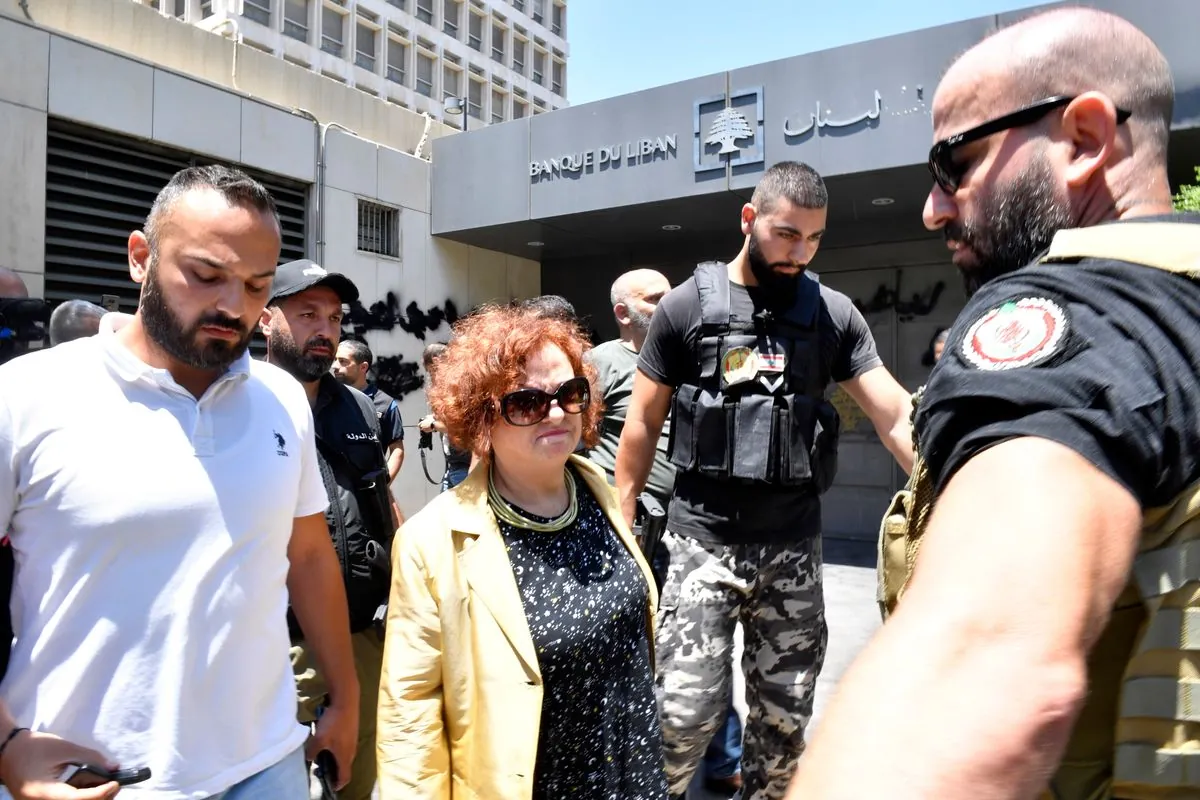Former Lebanese Central Bank Chief Arrested Amid Financial Scandal
Riad Salameh, Lebanon's ex-central bank governor, detained over alleged financial crimes. Once hailed as an economic savior, Salameh now faces corruption charges and international sanctions.

Lebanese authorities have apprehended Riad Salameh, the former governor of Lebanon's central bank, Banque du Liban. The arrest follows an investigation into his financial dealings with Optimum Invest, a Lebanese brokerage firm.
Salameh, who led the central bank for three decades, departed from his position over a year ago amidst a cloud of controversy. Once credited with revitalizing Lebanon's post-civil war economy, he now faces accusations of financial misconduct. Lebanon's civil war, which lasted 15 years, ended in 1990, marking the beginning of a new economic era for the country.
According to judicial sources, Salameh is accused of accruing more than $110 million through financial crimes involving Optimum Invest. The public prosecutor, Jamal al-Hajjar, has ordered a four-day detention period for Salameh, after which he may face formal arrest or release.

The fall from grace of Salameh coincides with Lebanon's severe economic crisis, which began in 2019. This crisis led to hyperinflation, with the inflation rate reaching a staggering 269% in 2022. The Lebanese pound, which had been pegged to the US dollar since 1997, experienced a dramatic devaluation. Consequently, over 80% of Lebanon's population fell below the poverty line by 2022.
Salameh's reputation shifted dramatically during this period. Once considered a financial wizard who kept Lebanon's economy afloat, he became a target of public anger. Protesters, including bank depositors and retired soldiers whose pensions lost value, demonstrated against him. The central bank was forced to fortify its premises with concrete blocks and barbed wire.
"Salameh abused his position of power, likely in violation of Lebanese law, to enrich himself and his associates by funneling hundreds of millions of dollars through layered shell companies to invest in European real estate."
In August 2023, shortly after Salameh left the central bank, the U.S. Treasury Department imposed sanctions on him. The department accused him of corrupt actions contributing to the breakdown of the rule of law in Lebanon. The United Kingdom and Canada also imposed similar sanctions.
The allegations against Salameh include using a shell company owned by his brother in the Virgin Islands to divert approximately $330 million from transactions involving Lebanon's central bank. These funds were reportedly transferred to property management companies in several European countries, including France and Germany.
Lebanon's economic crisis, described by the World Bank as one of the worst globally since the 1850s, has had far-reaching consequences. The country's GDP contracted by over 40% between 2018 and 2022, and the unemployment rate reached nearly 30% in 2022. Additionally, Lebanon's electricity grid now provides only a few hours of power per day to most areas, further exacerbating the country's challenges.
As investigations continue, the arrest of Riad Salameh marks a significant moment in Lebanon's ongoing struggle with corruption and economic instability. The country, which hosts one of the highest refugee populations per capita in the world, faces an uphill battle in restoring its once-thriving banking sector and overall economic stability.


































